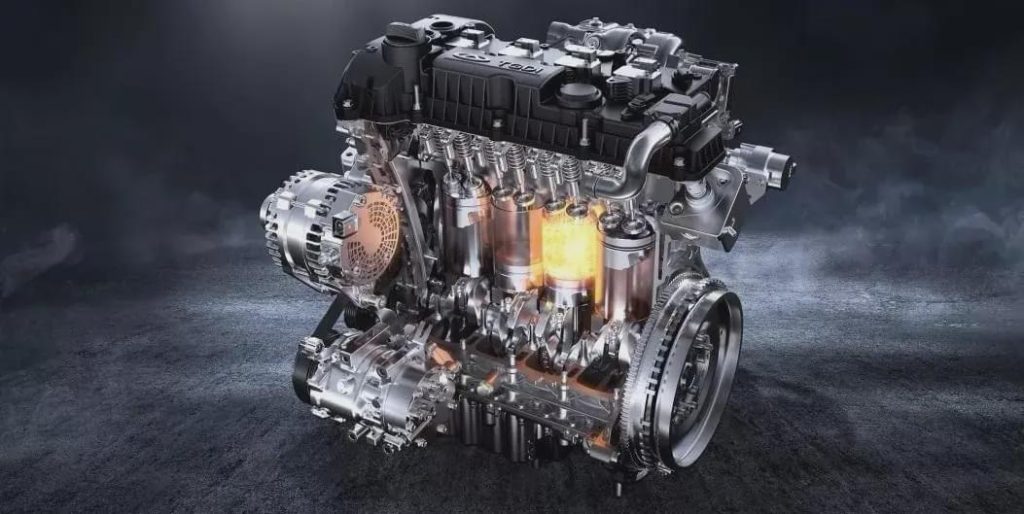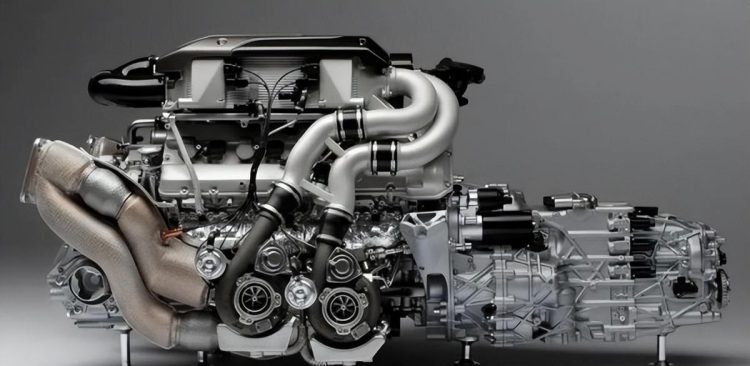Introduction
Car enthusiasts and everyday drivers alike often focus on how a car performs on the road, but one crucial element that dictates performance is often overlooked: the engine type. Whether you’re interested in speed, fuel efficiency, or towing capacity, the type of engine a vehicle uses plays a significant role in how well it drives.
In this article, we’ll explore how engine types impact car performance in various contexts. From the power and acceleration offered by different engine configurations to their efficiency and environmental impact, we will break down the key factors that influence driving experiences. Additionally, we’ll provide insight into which engine type might be best suited to your needs, taking into account your driving habits and preferences.
1. Understanding the Basics of Engine Types
A. What Is an Engine?
- An engine is the heart of any vehicle, responsible for converting fuel into mechanical energy that propels the car forward. In simple terms, it’s the component that powers the vehicle, whether it’s a gas-powered engine, a hybrid, or an electric motor.
- Different engine types vary in terms of fuel efficiency, power output, smoothness, and other performance characteristics.
B. The Core Engine Types
- Internal Combustion Engines (ICE): The most common type, which relies on burning fuel (gasoline or diesel) to produce power.
- Gasoline Engines: More common in passenger vehicles, often designed for fuel efficiency and moderate power output.
- Diesel Engines: Known for better fuel efficiency and torque, often found in trucks and larger vehicles.
- Electric Motors: The power source in electric vehicles (EVs), using electricity stored in batteries to drive the car’s wheels.
- Hybrid Engines: Combines a gasoline engine with an electric motor to enhance fuel efficiency and reduce emissions.
- Turbocharged and Supercharged Engines: These are variations of internal combustion engines that increase performance by forcing more air into the engine, allowing for more fuel to be burned.
- Wankel Engines: A less common type of rotary engine, used in certain sports cars, known for its unique design and high RPM capability.
2. How Engine Types Affect Performance
A. Power and Acceleration
- Horsepower and Torque: Horsepower represents how much power the engine can produce, while torque measures the rotational force. Together, these figures dictate a car’s acceleration and overall power.
- Gasoline Engines: Offer a balance between power and efficiency. They are typically less powerful than diesel engines but more versatile.
- Diesel Engines: Known for producing higher torque, making them ideal for heavy-duty vehicles, towing, and off-road vehicles.
- Electric Motors: Provide instant torque, resulting in smooth, immediate acceleration. This is one reason why electric vehicles (EVs) often feel faster than their gasoline counterparts in low-speed acceleration.
- Turbocharged and Supercharged Engines: These engines are designed to provide a power boost, making them ideal for high-performance sports cars and vehicles that require quick acceleration and high-speed capabilities.
B. Fuel Efficiency
- Gasoline vs. Diesel: Diesel engines tend to offer better fuel efficiency because diesel fuel contains more energy per gallon, and the engine’s design is optimized for efficiency.
- Electric Vehicles: EVs are typically more energy-efficient than gasoline vehicles, especially in urban driving scenarios, where regenerative braking helps recharge the battery.
- Hybrid Engines: These offer the best of both worlds, delivering improved fuel efficiency through the combination of gasoline and electric power. They are designed for drivers who want to save fuel in everyday driving but still need the flexibility of an internal combustion engine on longer trips.
C. Environmental Impact
- Internal Combustion Engines: Gasoline and diesel engines emit carbon dioxide (CO2) and other pollutants like nitrogen oxides (NOx) and particulate matter, contributing to climate change and air quality issues.
- Electric Engines: EVs are often seen as the environmentally friendly alternative since they produce zero tailpipe emissions. However, the environmental impact depends on how the electricity is generated (e.g., coal vs. renewable energy).
- Hybrid Engines: While they still use gasoline, hybrids are more fuel-efficient and produce fewer emissions than traditional gasoline-only vehicles.
D. Driving Experience and Handling
- Gasoline Engines: Known for providing a smooth and responsive driving experience. The refinement of these engines makes them popular in luxury sedans and everyday cars.
- Diesel Engines: Due to their higher torque, diesel engines provide excellent towing power and can be beneficial for heavy-duty applications, but they can sometimes result in a rougher driving experience.
- Electric Motors: Offer an almost silent driving experience with quick acceleration and smooth handling. The absence of a traditional gearbox in most EVs makes the ride feel effortless, with the instant torque delivering smooth power delivery.
- Turbocharged/Supercharged Engines: These engines offer the thrill of high performance, delivering fast acceleration and increased engine output, making them ideal for performance-focused cars.
3. Engine Performance in Different Types of Vehicles
A. Sedans and Compact Cars
- Best Fit: Gasoline and Hybrid Engines
- Sedans and compact cars often prioritize fuel efficiency and everyday usability. Gasoline engines remain the most popular choice for these types of vehicles, balancing power, efficiency, and ease of maintenance.
- Hybrids, with their combination of gasoline and electric power, are also gaining popularity in this category as consumers look for ways to reduce fuel consumption.
B. SUVs and Crossovers
- Best Fit: Gasoline, Diesel, and Hybrid Engines
- SUVs and crossovers offer more space and power, with many models using gasoline engines for their balance of performance and comfort.
- Diesel engines are often chosen for their higher torque, which benefits larger, heavier vehicles and those used for towing.
- Hybrids are becoming more common in this category as consumers look for environmentally friendly options while maintaining the versatility and power an SUV can offer.
C. Trucks and Heavy-Duty Vehicles
- Best Fit: Diesel Engines
- Diesel engines are preferred in trucks due to their ability to produce high torque, which is essential for towing heavy loads and hauling large amounts of cargo.
- In the future, electric trucks (e.g., Rivian R1T, Ford F-150 Lightning) could challenge diesel engines for performance and sustainability.
D. Sports Cars
- Best Fit: Turbocharged, Supercharged, or Electric Engines
- Sports cars typically prioritize high performance and acceleration. Turbocharged and supercharged engines offer the necessary power and speed for these vehicles.
- Some electric sports cars, like the Tesla Roadster and Rimac Nevera, use electric motors to deliver instant torque and blistering acceleration, offering a new dimension to the sports car experience.
E. Luxury Cars
- Best Fit: Gasoline, Hybrid, and Electric Engines
- Luxury vehicles often focus on smooth performance and cutting-edge technology. Gasoline engines provide the refinement and responsiveness expected in luxury sedans.
- Hybrids are increasingly common in this segment, allowing for enhanced efficiency without sacrificing power.
- Electric luxury cars, such as the Audi e-Tron or the Lucid Air, are gaining traction, offering quiet, smooth rides with plenty of high-end features.

4. What Engine Type is Best for You?
Choosing the right engine depends on your specific needs, driving habits, and preferences. Let’s explore the factors you should consider when selecting an engine:
A. Driving Style and Performance Needs
- Do you prioritize speed and acceleration, or is fuel efficiency and long-range travel more important to you?
- If performance is key, turbocharged, supercharged, or electric engines might be your best choice.
- For long road trips or heavy hauling, diesel or hybrid engines may be the better fit.
B. Environmental Considerations
- If sustainability is a top priority, you may want to choose an electric vehicle (EV) or a hybrid. Both are generally more eco-friendly than traditional gasoline or diesel-powered vehicles.
C. Budget and Fuel Costs
- Consider your budget not just for the vehicle purchase but also for ongoing fuel costs. Diesel engines tend to be more fuel-efficient for long-distance driving but might come at a higher upfront cost.
- EVs can save money on fuel over time but might have a higher initial price, depending on the model and available government incentives.
D. Maintenance and Durability
- Gasoline engines are typically less expensive to maintain than diesel engines, but diesel engines last longer if properly maintained.
- Electric engines require less maintenance overall since there are fewer moving parts compared to internal combustion engines.
5. Conclusion: Which Engine Is Right for You?
Ultimately, the best engine type for your vehicle depends on your specific needs and driving habits. Whether you prioritize performance, fuel efficiency, or environmental impact, understanding the advantages and limitations of each engine type will help you make an informed decision.
- For Performance Enthusiasts: Turbocharged, supercharged, or electric engines will deliver thrilling acceleration and high-speed capabilities.
- For Long-Distance Travelers: Diesel or hybrid engines are great for long trips due to their fuel efficiency and range.
- For Eco-Conscious Drivers: Electric vehicles are the best option, offering zero emissions and significant long-term savings on fuel.
- For Everyday Commuters: Gasoline or hybrid engines provide a solid balance of performance and fuel efficiency for daily driving.
Each engine type offers unique benefits, and the key to making the right choice lies in aligning your priorities with the engine that best matches your lifestyle and driving preferences.


































Discussion about this post